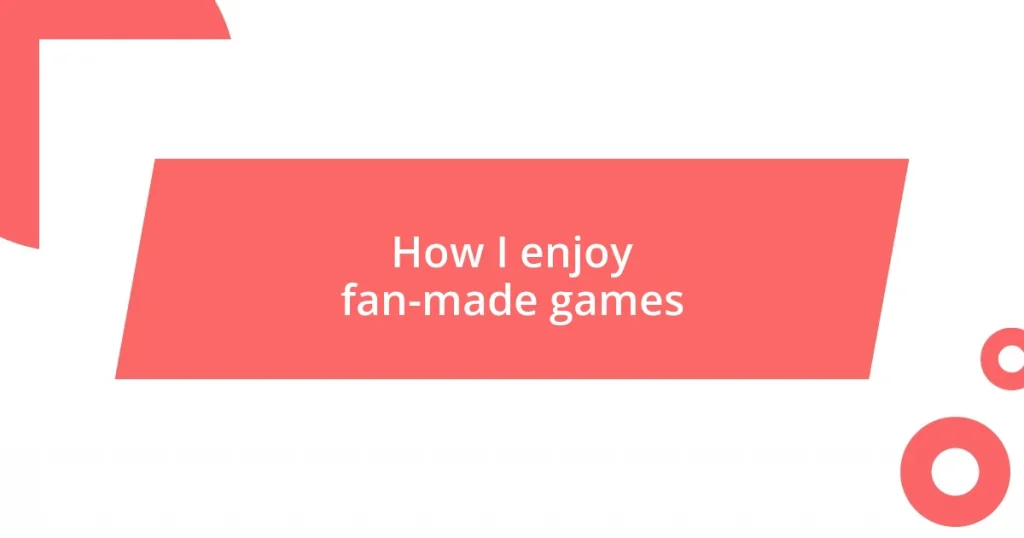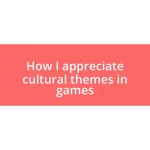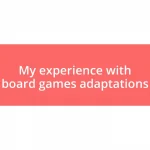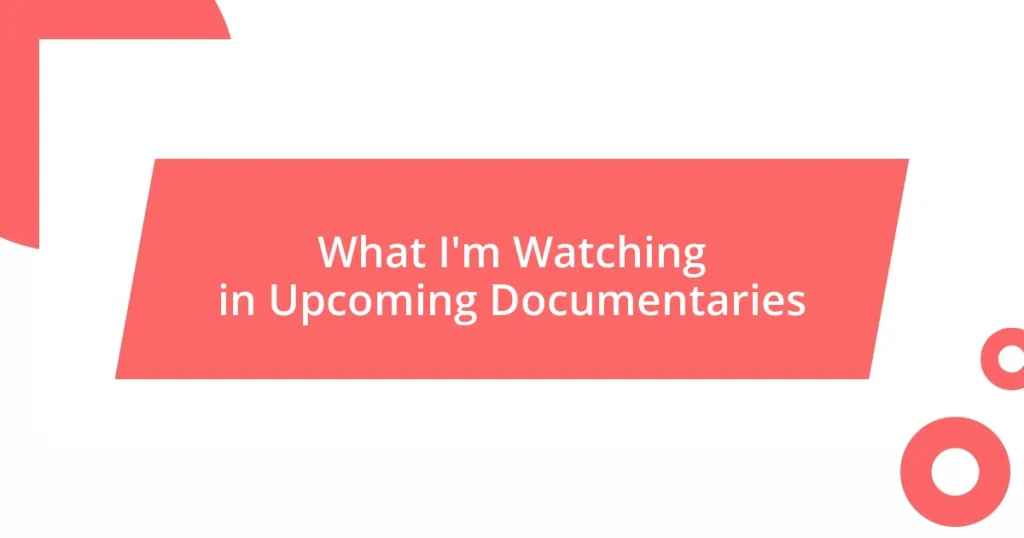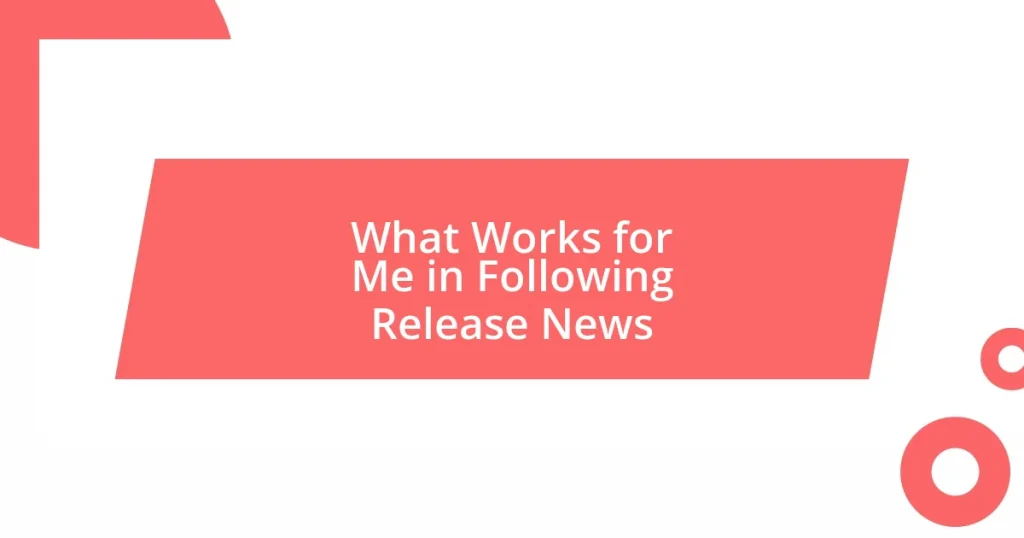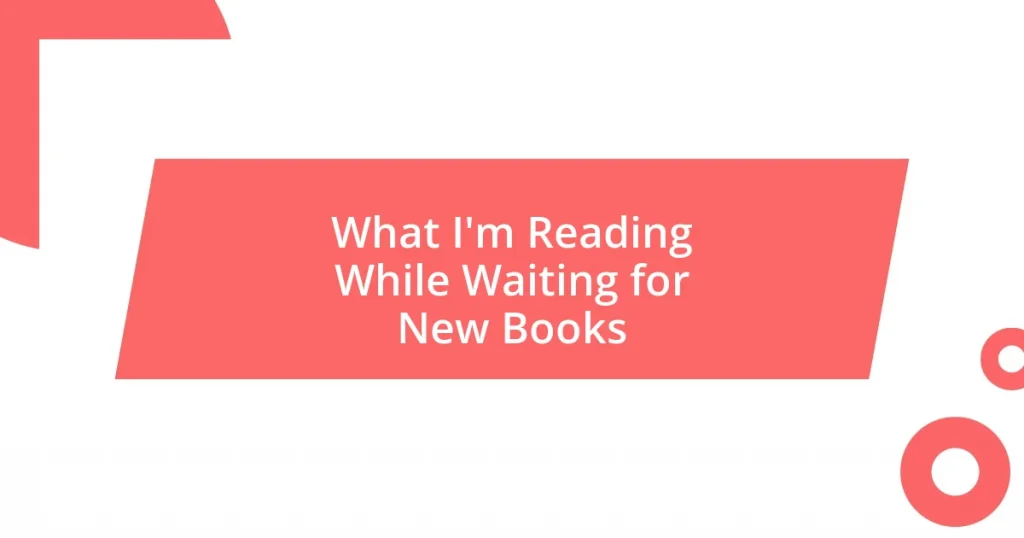Key takeaways:
- Fan-made games allow for creative exploration of beloved franchises, offering fresh narratives and unique gameplay experiences.
- Engaging with fan-made game communities fosters connections, provides valuable feedback, and can inspire new creative ambitions among developers and players.
- Supporting fan developers through feedback and promotion nurtures creativity and strengthens the gaming community, creating a cycle of inspiration and collaboration.
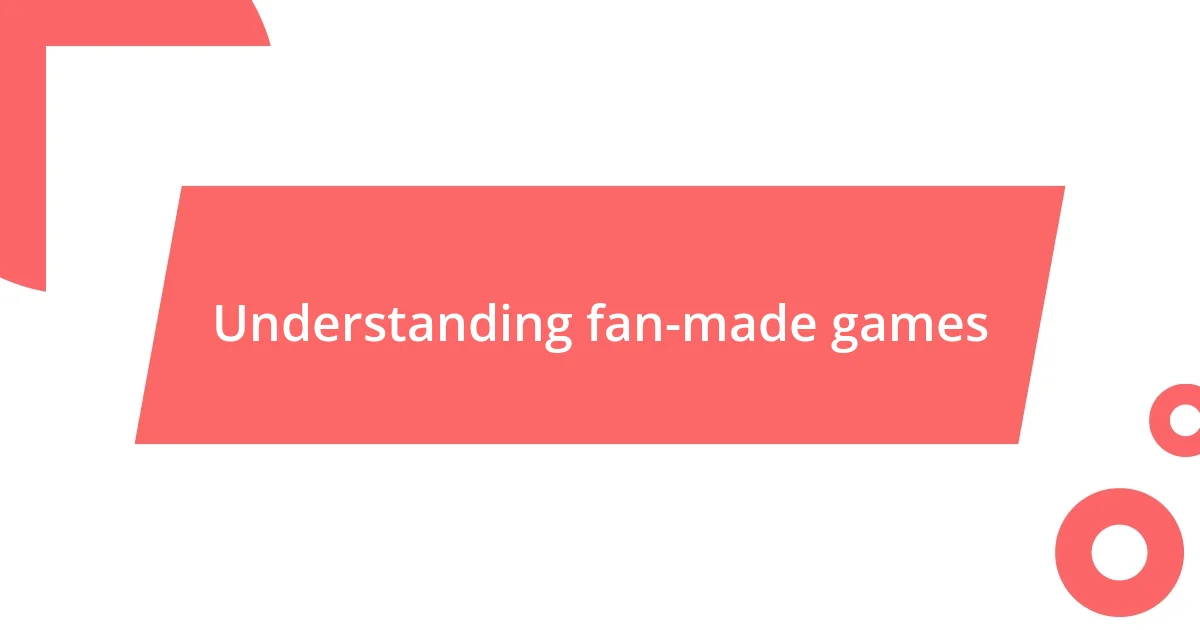
Understanding fan-made games
Fan-made games are a fascinating testament to creativity and passion. They spring from the love of existing franchises, allowing fans to explore new narratives or gameplay mechanics that the original developers might not consider. I remember the thrill of playing a fan-made Pokemon game where I could catch and train unique creatures that weren’t in the official series—what a joy to experience something fresh yet familiar!
These games often reflect the developers’ deep emotional connections to the source material. When I engaged with a fan-made Zelda title that expanded on Link’s backstory, it felt like a heartwarming reunion with a friend, rekindling memories of my childhood. Isn’t it remarkable how fans can tap into the emotional essence of these worlds, crafting experiences that resonate on a personal level?
Moreover, fan-made games can sometimes challenge or critique aspects of their source material. For instance, I played an indie game reimagining a well-known franchise, showcasing how different mechanics could lead to a richer experience. It made me wonder: what if developers took cues from these fan projects? There’s a powerful dialogue between creators and fans here, one that enriches gaming culture at large.
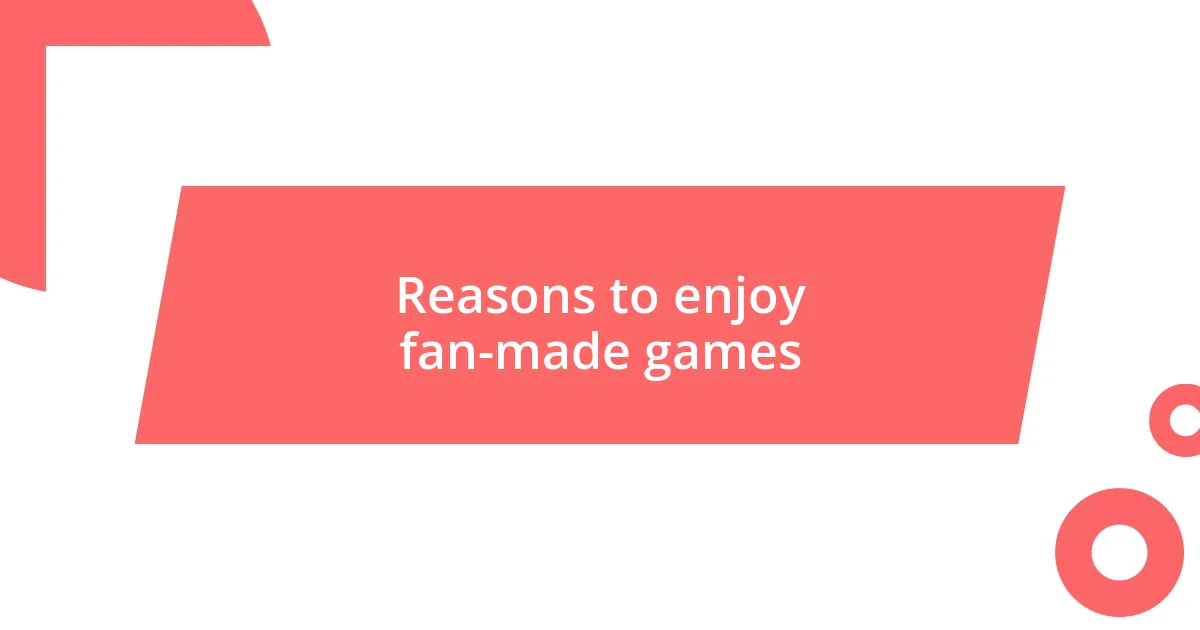
Reasons to enjoy fan-made games
The charm of fan-made games lies in their ability to offer unique experiences that can’t be found in the official titles. They allow for exploration of new ideas and concepts, often resulting in refreshing gameplay. For example, I once stumbled upon a fan-made horror game based on a beloved childhood series. The way it twisted familiar elements into something thrilling was exhilarating! It made me realize how these passionate creators breathe new life into franchises while keeping the core essence intact.
Here are a few reasons to enjoy fan-made games:
- Creativity Unleashed: They push boundaries, allowing developers to experiment freely.
- Community Connection: They foster connections among fans who share similar interests.
- Expanded Lore: Many fan-made games dive deeper into the storylines, enriching the universe.
- Nostalgia and Innovation: They evoke nostalgia while presenting innovative twists on familiar themes.
- Personal Touch: Players often feel the love and dedication that went into creating these games, adding personal meaning to the experience.
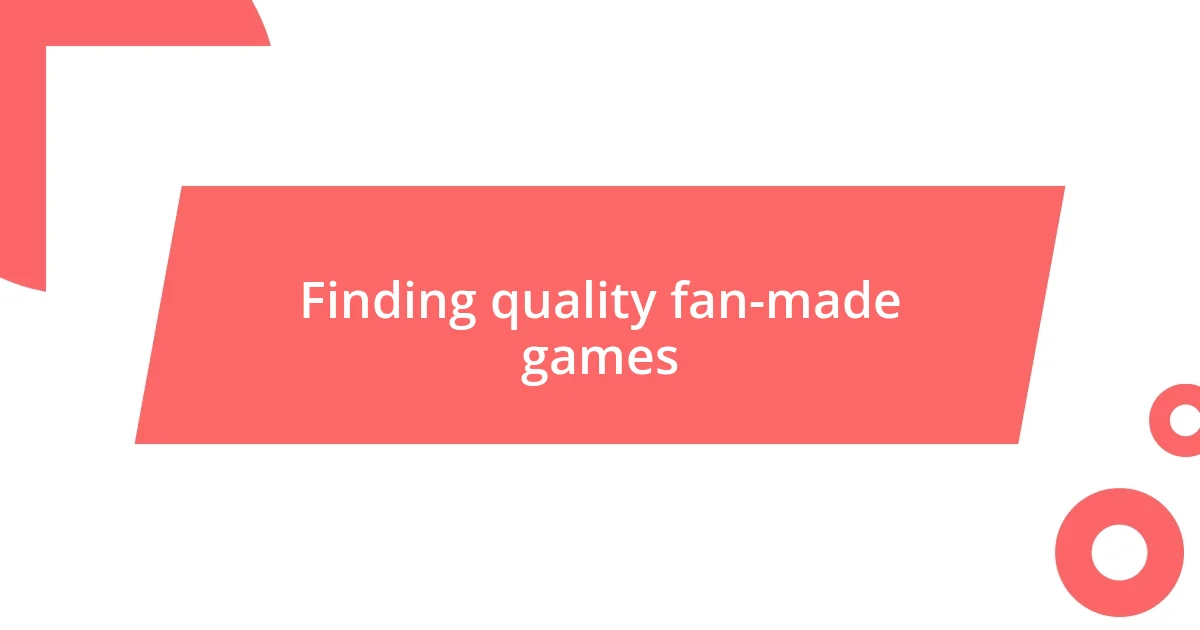
Finding quality fan-made games
Finding quality fan-made games can sometimes feel like a treasure hunt. I’ve had my fair share of searching through various forums and platforms to uncover hidden gems. Websites like itch.io and Game Jolt are wonderful resources, packed with creators sharing their passion projects. In my experience, reading player reviews gives a clearer picture of what to expect. It can really help differentiate between a half-baked effort and a truly engaging game.
Another great tip is to follow communities dedicated to fan-made games. These spaces, whether on social media or dedicated discussion boards, often highlight fantastic projects that might fly under the radar. I remember joining a Discord group focused on fan-made titles, where members regularly shared their latest finds. The excitement in those conversations was contagious and led me to play a stunning retro-style game that paid homage to classic arcade titles. Engaging with these communities can turn up remarkable recommendations.
Lastly, keeping an eye on game jams can be incredibly fruitful. These are events where developers create games within a set time limit, often leading to innovative and unique ideas. One of my favorite experiences was discovering a fan-made game inspired by a popular sci-fi series during a 48-hour game jam. The creativity that sprang forth in that short time was awe-inspiring and reminded me of why I love exploring fan-made projects.
| Resource Type | Example |
|---|---|
| Platforms | itch.io, Game Jolt |
| Community Forums | Discord, Reddit |
| Game Jams | Panic Jam, Ludum Dare |
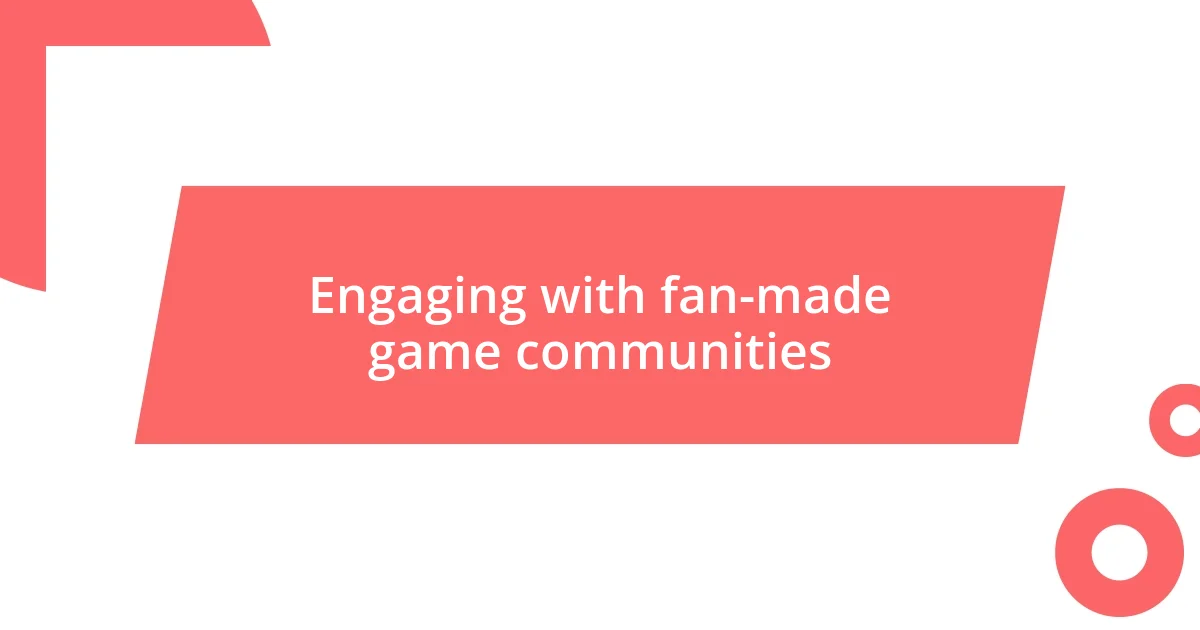
Engaging with fan-made game communities
Engaging with fan-made game communities can be one of the most rewarding aspects of enjoying these creations. I distinctly remember my first interaction in a fan forum dedicated to a popular RPG. The energy in that space was palpable, as fellow fans dissected game mechanics and shared their theories. It felt like being part of an exclusive club united by a shared love, where every post sparked new ideas and discussions. Have you ever experienced a moment where a simple comment led you down a rabbit hole of creativity?
From my experience, finding a supportive community makes all the difference in how I appreciate a game. I often participate in game jams where passionate developers come together, share their projects, and offer constructive feedback. Last summer, I collaborated with a group of creators on a fan remake of a classic platformer. The camaraderie and creativity ignited during that weekend were incredible! Witnessing everyone’s ideas flourish was not only inspiring but also solidified the bond we formed over our love for gaming.
One of the highlights of engaging with these communities is the opportunity to see firsthand how some players evolve into developers. I’ve seen people start from simply sharing their enthusiasm to releasing their own games, often motivated by the encouragement they received. I once came across a modest announcement in a Discord channel; a member was releasing their first fan-made project based on a long-abandoned series. Remembering that rush of excitement gives me hope for the future of gaming—there’s something beautiful about how connections can inspire creativity and spark newfound passion. Isn’t that what gaming is all about?
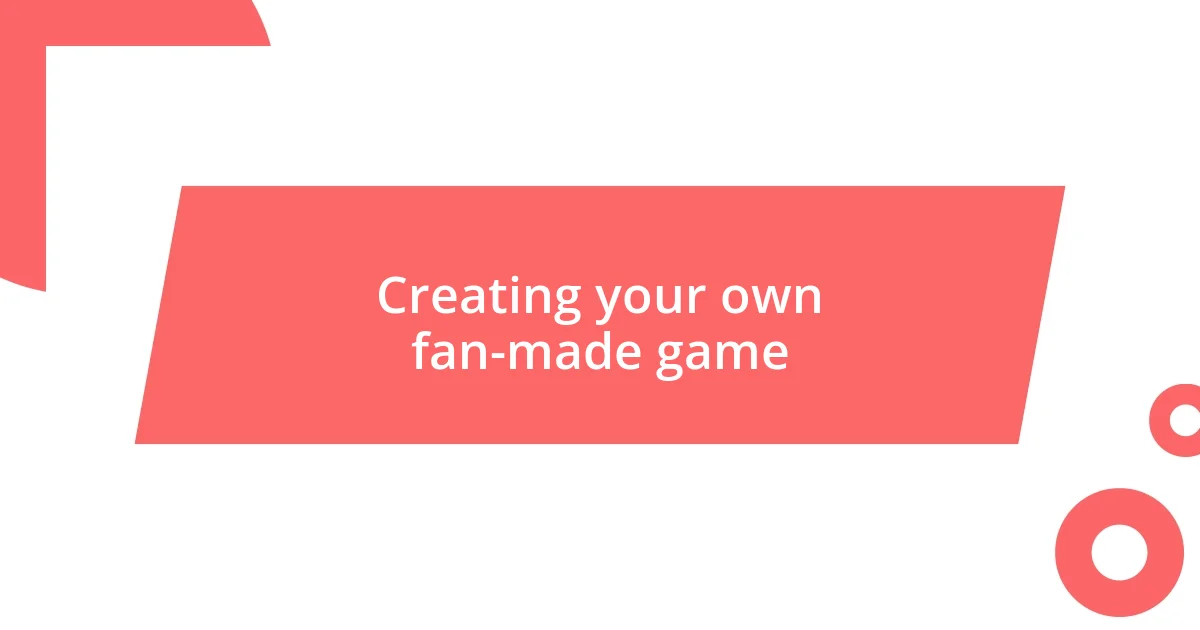
Creating your own fan-made game
Creating a fan-made game can be an exhilarating journey filled with creativity and personal expression. I recall when I first began dabbling in game design; the thrill of bringing my favorite characters and ideas to life was unlike anything else. Using tools like Unity or RPG Maker, I discovered that even with minimal coding knowledge, I could craft something enjoyable. Have you ever felt that rush when your vision starts to materialize on screen?
One of the most rewarding aspects is the ability to curate an experience tailored specifically to your fandom. I vividly remember creating a side-scrolling adventure inspired by a beloved anime series. The late nights spent getting the mechanics just right and tweaking the dialogue felt like a labor of love. It’s fascinating how, in sharing your passion, you can connect with others who resonate with your choices, be it the story arcs, characters, or even the visual style.
Networking with other creators is essential, too. Collaborating with others expands your skills and broadens your perspective. I once partnered with a friend to develop a fan game, and the ideas we exchanged led to unexpected features that enhanced the overall experience. The sense of community and shared ambition taught me that while creating alone can be fulfilling, joining forces often leads to something truly special. Is there a creative ambition you have that could flourish with a little collaboration?
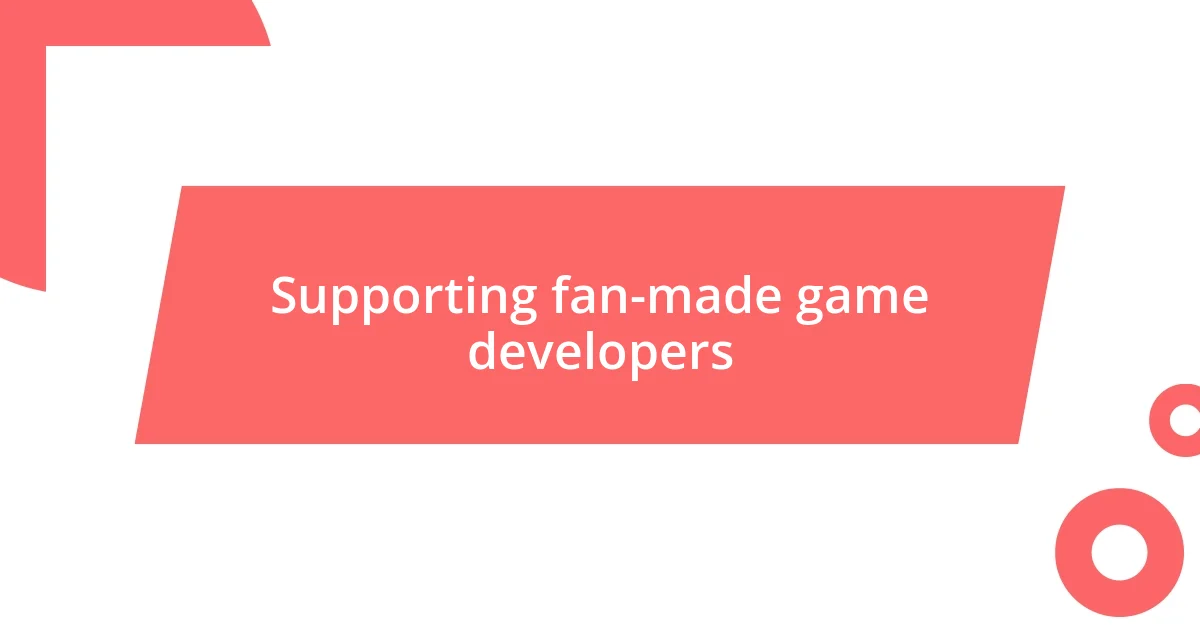
Supporting fan-made game developers
Supporting fan-made game developers is vital for nurturing creativity in gaming communities. I remember when I stumbled upon a Kickstarter campaign launched by a group of indie developers aiming to create a sequel to a cult classic. I felt a wave of excitement and urgency to contribute, not just financially but also by sharing their project with my friends and online networks. Engaging actively in these campaigns is like planting seeds of support that can bloom into great ideas; how satisfying is it to see someone else’s passion come to fruition?
Another way I actively support these developers is by leaving constructive feedback on their online forums. I once played an early demo of a fan-made horror game, and I couldn’t resist sharing my thoughts. The developers appreciated my input and even implemented some suggestions in their next update. It struck me how small gestures can uplift a creator’s confidence and drive them to refine their work. Have you ever experienced the joy of seeing your advice lead someone to improve their creation?
Communities often rally around developers, amplifying their work through fan art, videos, and gameplay streams. I recall when I watched a live stream featuring a developer playtest their game; the chat buzzed with excitement and ideas. Seeing how passionate gamers elevate a project makes me believe in the power of collaboration. It’s a beautiful cycle: support inspires creativity, and creativity fuels further support. Isn’t it fascinating how interconnected we all are in this gaming universe?
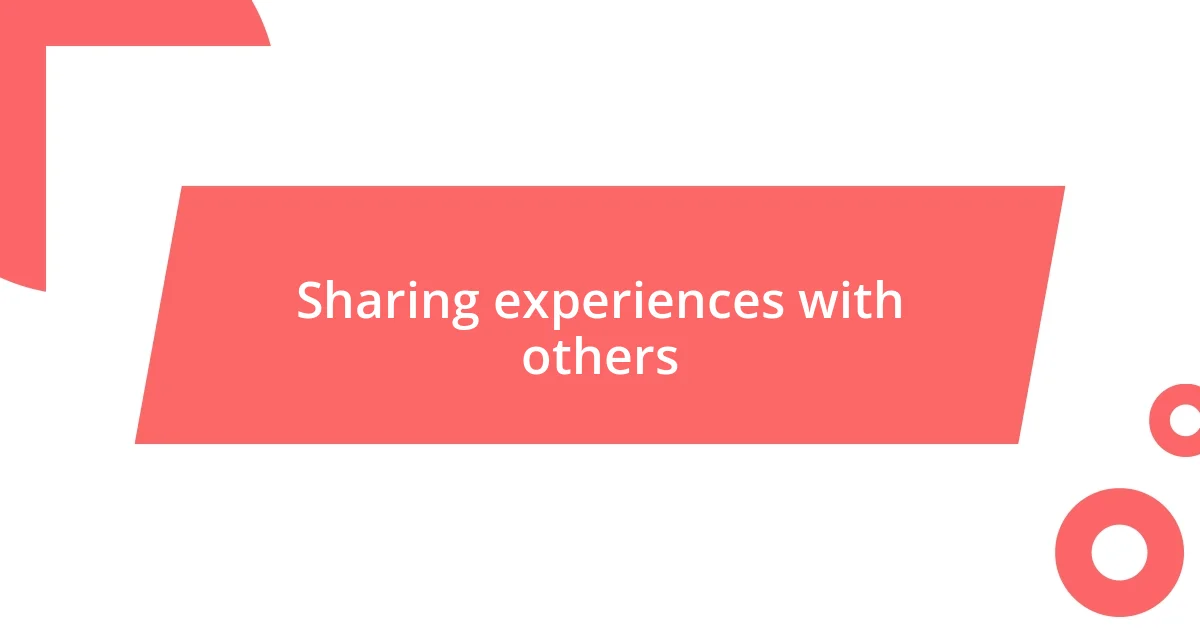
Sharing experiences with others
Sharing experiences with others is where the magic of fan-made games truly shines. I recently joined an online forum dedicated to a popular indie game, and the sense of belonging was immediate. Engaging in discussions about game mechanics and sharing our stories of triumphs and frustrations felt like a nostalgic reunion with fellow fans. Have you ever had that sensation of camaraderie, where your shared experiences weave invisible threads between you and others?
Attending local gaming events allows for even deeper connections. I remember hopping onto a Discord voice chat during a game jam, where fellow creators shared their latest projects. The energy was infectious! Everyone was not only showcasing their creations but also brainstorming ideas together. I left that night feeling invigorated and inspired. Has the thrill of collective creativity ever pushed you to explore new boundaries in your projects?
The feedback loop in gaming communities can be incredibly enriching. One time, I shared a rough build of my fan project during a playtest session, and the reactions were eye-opening. Hearing real-time reactions from players, both positive and constructive, opened my eyes to new possibilities. It’s thrilling to see how our shared experiences can refine our creations, leading to something that resonates with even more people. Don’t you find it exhilarating how we can grow as creators through these communal interactions?










